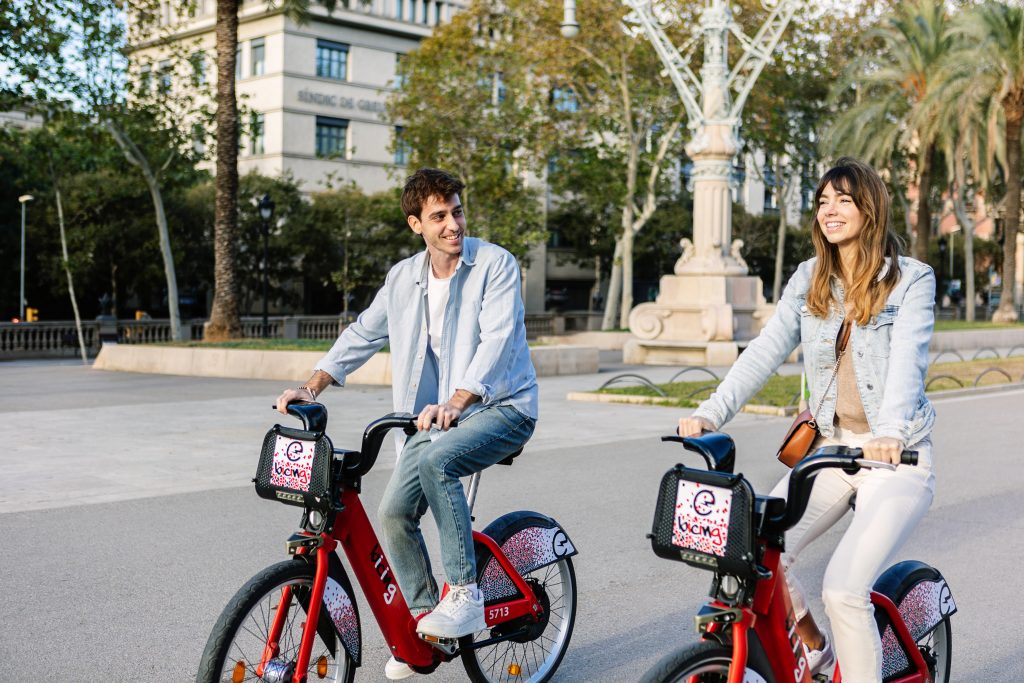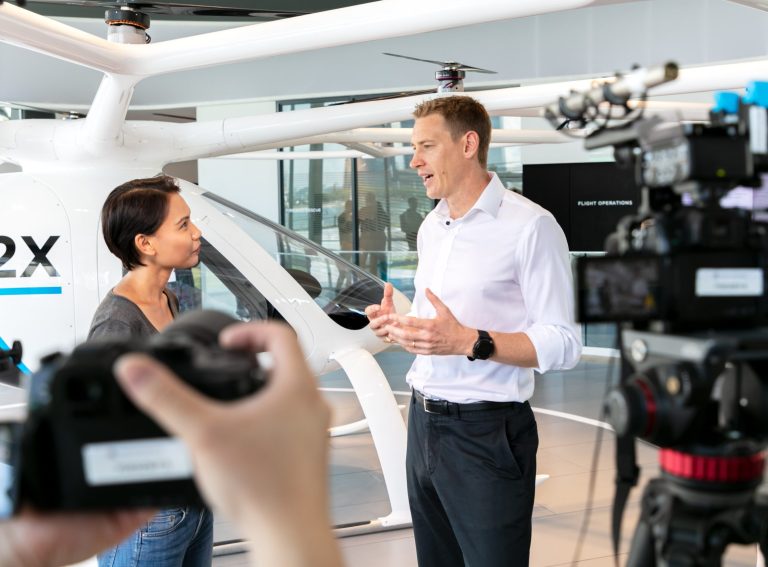In 2023, Madrid’s public bike share scheme known as Bicimad recorded 7.6 million trips.
PBSC, a global provider of bike share systems, took over the solution in March to play a pivotal role in achieving this significant usage volume.
Better yet, the new system by PBSC recorded more than 340,000 subscribers in January just gone – nearly double the number from four months earlier.
As PBSC nears its first anniversary for the fleet launch in Madrid, and five years on since it entered the Spanish market in 2019, it’s worth zooming in on how the bikeshare provider is laying the grounds for its Spanish empire.
E-bikes? Bring them.
Last year Madrid saw the launch of PBSC’s largest e-bike fleet in the world.
Dubbed Bicimad, the system covers all 21 of the capital’s districts and consists of 7,500 e-bikes and 611 charging stations.
The project is in collaboration with PBSC’s long standing partner Serveo and Madrid’s public transport authority EMT Madrid.
For PBSC Business Development Manager Gustavo Herrero, there’s no turning back from e-bikes in Madrid, Spain, or the rest of Europe for that matter.
“We’re seeing cities that are only ordering e-bikes and charging stations,” Gustavo tells Zag Daily. “And even in those projects that have a mixed fleet, the number of e-bikes that are ordered for the city are initially underestimated resulting in additional orders coming in at a later date.”
Cycling isn’t just about health anymore, Gustavo says, with even the most able riders still opting for electric bikes to get around the city. It is about adapting to the times and understanding the potential that these vehicles bring to cities of all geographical regions, climate conditions and inclines.
“A new city in 2024 or 2025 cannot exist without e-bikes. Perhaps a city could have started with regular bikes a few years ago and then added in a small fleet of e-bikes if usage was going that way, but now if someone is in front of a pedal bike or an e-bike, they’ll choose the e-bike.
“It’s just trendier.”
The trend isn’t just confined to Spain either, but rather the whole of Europe which sees a lower cost of electrification compared to other regions in the world such as North America.
A smooth transition
For all the Spanish cities that PBSC entered into, the new bike share system means the end of an old one.
It’s therefore important that the transition is a smooth one to avoid there being any period of downtime without a bike share system in place and to ensure that the rider experience is not disrupted.
“We need to come up with a plan to maintain the previous system while the new one comes into place,” Gustavo says. “This is challenging, however this is our expertise.”
And there’s no set outline for the plan either. When PBSC launched in Barcelona in 2019, the chosen method was to replace 50% of stations in each bike cluster with those from the new system Bicing, in order to ease riders through the transition by using both systems in tandem. Within 53 business days, the replacement of 410 stations was complete.

For Madrid, a new approach from PBSC also saw both the old system and the new system work in parallel.
“Our expertise minimizes the effect on riders when there’s a transition from an older system to a new one, and we strategize with our partners on how to efficiently migrate the software and hardware,” Gustavo says.
“We have seen some cities suffer from a disastrous transition, so we are proud of what we achieved in Spain.”
And proud they should be, with 2023 seeing a 95% increase in trips taken in Madrid compared to the previous year. Bicimad also boasted 185,000 subscribers in November 2023 which is triple the number in 2019 when Madrid was served by a different supplier.
“This means that people aren’t just giving the new system a try after the migration, they’re sticking with the service and growing our membership.”
Charging – a global attraction
“Cities are faced with many problems,” Gustavo says. “We come up with reliable products and this attracts cities to us.”
With a global presence, PBSC has grown to account for many of the caveats that come with managing bikeshare across the world and tailoring the system for each individual city.
To achieve this, flexibility is at the heart of its service. And of its charging stations.
The modularity of PBSC’s charging stations allows for a quick installation with minimal civil work and disruption to city life. Stations can easily be enlarged or moved to another location, giving the provider a competitive advantage when it comes to which vendor should be awarded the contract by the city.
Take Monaco for instance; Each year, PBSC removes its charging stations from the city to make way for the annual Monaco Grand Prix Formula One racing event. Once the event is over, the stations are then returned like nothing ever happened.
The flexibility of PBSC’s charging stations also makes for an argument against dockless bikes.
“Cities find that dockless bikes fail to offer a reliable transportation system. The inconsistency of finding a bike available one day and not the next makes it challenging for workers and students to depend on them for daily commutes.
“With the addition of stations, bikes will always be organized and charged. And once bikes are docked, they can’t disappear from the system at the hands of vandalism.”
Where from here?
2024 will see the expansion of PBSC’s bike share systems in both Barcelona and La Coruña.
Barcelona’s Bicing system will be upgraded with a 15% fleet expansion, translating to an additional 1,000 e-bikes and 74 stations. This will bring the total fleet size to 8,000 bikes and 585 stations.
La Coruña’s system, which currently has a fleet of 606 bikes and 55 charging stations, is also to expand by 300 e-bikes and 30 stations.
As the trend of electrification continues, PBSC is helping lead the way with its electric-only expansion of these fleets.
Gustavo’s insights affirm that the transition to electric is not just a trend, but a definitive shift, particularly for European cities.
“Electrification is the future, and for Europe, it’s a journey already set in motion towards a 100% electric horizon.”





